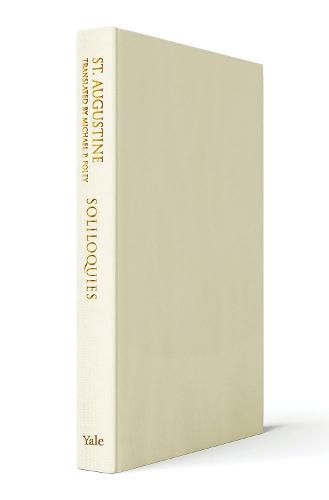Readings Newsletter
Become a Readings Member to make your shopping experience even easier.
Sign in or sign up for free!
You’re not far away from qualifying for FREE standard shipping within Australia
You’ve qualified for FREE standard shipping within Australia
The cart is loading…






A fresh, new translation of Augustine’s fourth work as a Christian convert
The first four works written by St. Augustine of Hippo after his conversion to Christianity are dialogues that have influenced prominent thinkers from Boethius to Bernard Lonergan. Usually called the Cassiciacum dialogues, these four works are of a high literary and intellectual quality, combining Ciceronian and neo-Platonic philosophy, Roman comedy and Vergilian poetry, and early Christian theology. They are also, arguably, Augustine’s most charming works, exhibiting his whimsical levity and ironic wryness.
Soliloquies is the fourth work in this tetralogy. Augustine coined the term soliloquy to describe this new form of dialogue. Soliloquies, a conversation between Augustine and his reason, fuses the dialogue genre and Roman theater, opening with a search for intellectual and moral self-knowledge before converging on the nature of truth and the question of the soul’s immortality. Foley’s volume also includes On the Immortality of the Soul, which consists of notes for the unfinished portion of the work.
$9.00 standard shipping within Australia
FREE standard shipping within Australia for orders over $100.00
Express & International shipping calculated at checkout
Stock availability can be subject to change without notice. We recommend calling the shop or contacting our online team to check availability of low stock items. Please see our Shopping Online page for more details.
A fresh, new translation of Augustine’s fourth work as a Christian convert
The first four works written by St. Augustine of Hippo after his conversion to Christianity are dialogues that have influenced prominent thinkers from Boethius to Bernard Lonergan. Usually called the Cassiciacum dialogues, these four works are of a high literary and intellectual quality, combining Ciceronian and neo-Platonic philosophy, Roman comedy and Vergilian poetry, and early Christian theology. They are also, arguably, Augustine’s most charming works, exhibiting his whimsical levity and ironic wryness.
Soliloquies is the fourth work in this tetralogy. Augustine coined the term soliloquy to describe this new form of dialogue. Soliloquies, a conversation between Augustine and his reason, fuses the dialogue genre and Roman theater, opening with a search for intellectual and moral self-knowledge before converging on the nature of truth and the question of the soul’s immortality. Foley’s volume also includes On the Immortality of the Soul, which consists of notes for the unfinished portion of the work.